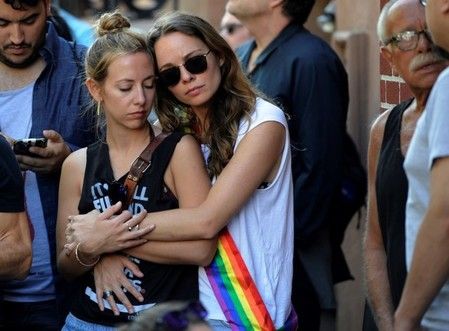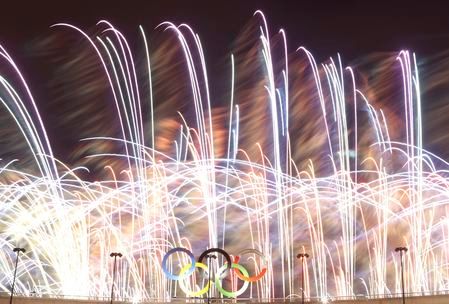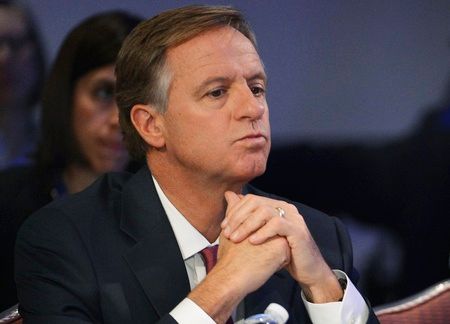Advertisement
Gay Americans are shaken, unbowed by nightclub attack

By Jonathan Allen and Gina Cherelus
NEW YORK (Reuters) – For many Americans, gay bars and nightclubs have long served as a place of refuge, a carefree place filled with like-minded souls away from the relatives, employers or anyone else who might judge them disapprovingly, or worse.
The massacre at a gay nightclub in Florida was seen as a jarring reminder of the discrimination they can still face, giving some renewed cause to march through city streets on Sunday in the Gay Pride events that fill the June calendar.
What compelled Omar Mateen to kill people dancing and mingling at Orlando’s Pulse nightclub in the early hours of Sunday in the deadliest shooting spree in U.S. history is still being investigated. But the killer’s father told NBC News his son had become angry after seeing two men kissing in Miami recently.
President Barack Obama, gay-rights groups and parade goers at Gay Pride events on Sunday cast the killings as an affront to the civil liberties of gay people after a string of hard-fought legal successes, including the U.S. Supreme Court’s ruling a year ago that all 50 states must allow same-sex marriage.
“An incident like this brings the hatred that does exist out there to the forefront,” Craig Baldwin said as he joined hundreds of people gathering in Washington, D.C., for the annual Gay Pride festival on Sunday, where people were by turns somber and defiant. A 39-year-old director for the Shakespeare Theater Company, Baldwin was handing out stickers that said “Shakespeare – Boys Kissing Boys Since 1592.”
“It is a reminder of what we have to do to spread love, not hate,” he said.
Julie Sibbing, 53, choked back tears as she discussed the shooting, saying it was important for her not to skip the parade.
“There is risk in this life and we’re not going to let hate win,” she said. “We’ve got to be amongst the family today. Everybody is suffering. I think we all kind of want to be together today.”
In Orlando, leaders of groups that service LGBT residents announced an effort to raise money for the victims of the shooting had amassed more than $430,000 within hours.
“We will love and support the victims even as we join to eradicate the hatred that lies at the core of this violence,” said Mary Meeks, a prominent Florida civil rights lawyer.
FLOWERS AT STONEWALL
Gay Pride parades in cities across the United States have grown out of the marches in 1969 protesting the police raids at the Stonewall Inn, a long-standing New York City bar that served gay people who were otherwise ostracized from society.
Rebecca Triglianos and Nicole Martin, a couple from Irvington, New York, contemplated the growing pile of flowers on Sunday outside the bar, a designated National Historic Landmark for its role in the gay-rights movement.
“This is a meeting space, we came here to celebrate marriage equality so we would come here to mourn a loss as well,” said Triglianos, referring to the jubilant crowds that spontaneously gathered at the Greenwich Village bar a year ago to celebrate the Supreme Court’s marriage decision.
Obama evoked the important role that bars and nightclubs have played in gay American life in his somber remarks on the attack at Pulse.
“The place where they were attacked is more than a nightclub,” he said. “It is a place of solidarity and empowerment where people have come together to raise awareness, to speak their minds, and to advocate for their civil rights.”
Some older Americans recalled the widespread public indifference that greeted the early years of the AIDS crisis in the 1980s, in which thousands of gay men died, and saw in the outpouring of sympathy following Sunday’s attack a welcome sign of changed times.
“The younger gay community has never really witnessed anything as devastating on the community as the older community did with HIV,” said Raymond Michael Sharpe, 55, a bartender at another Orlando gay club. “This time, we have the support of the whole world behind us, thank God.”
(Additional reporting by Ian Simpson and Ginger Gibson in New York and Barbara Liston in Orlando; Editing by Bill Trott and Nick Zieminski)




















